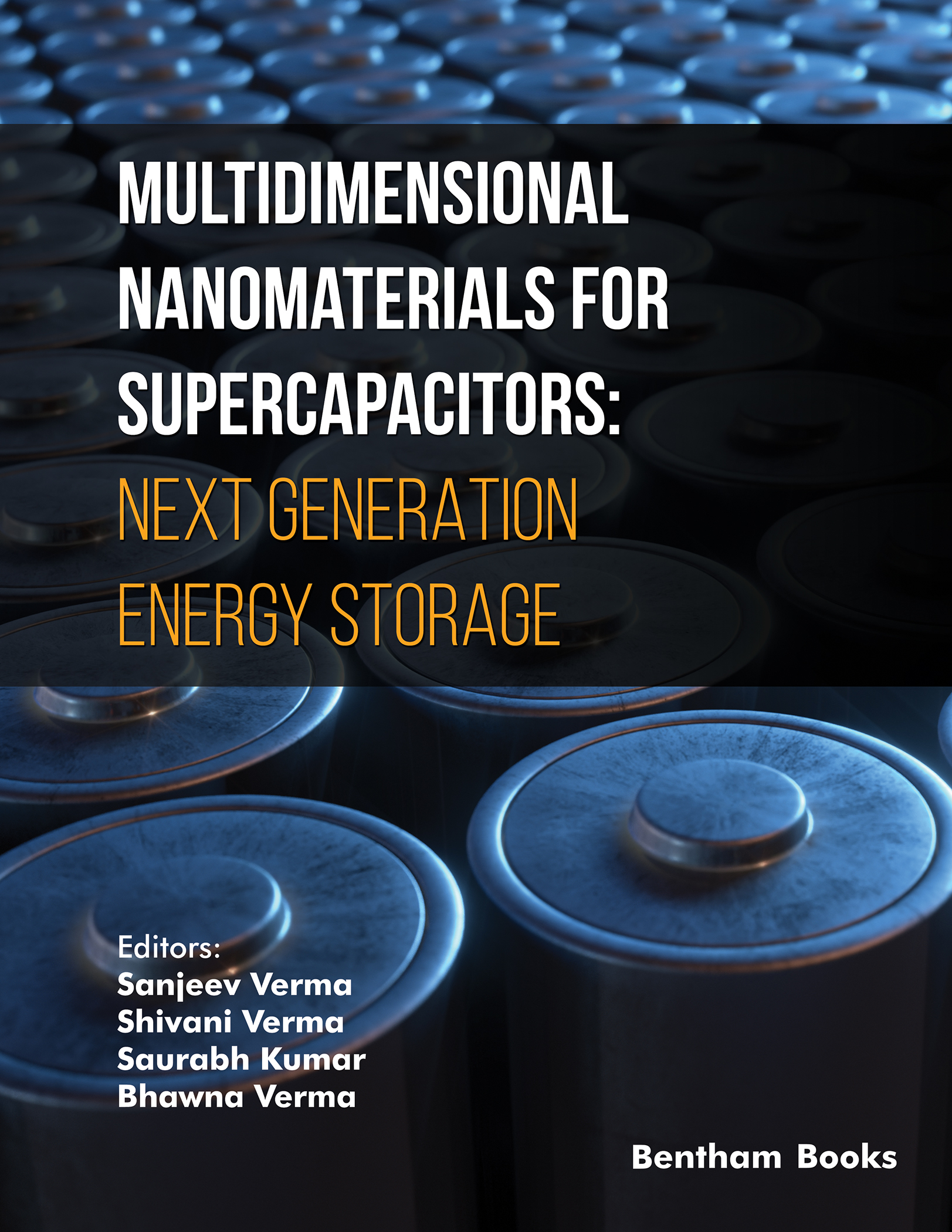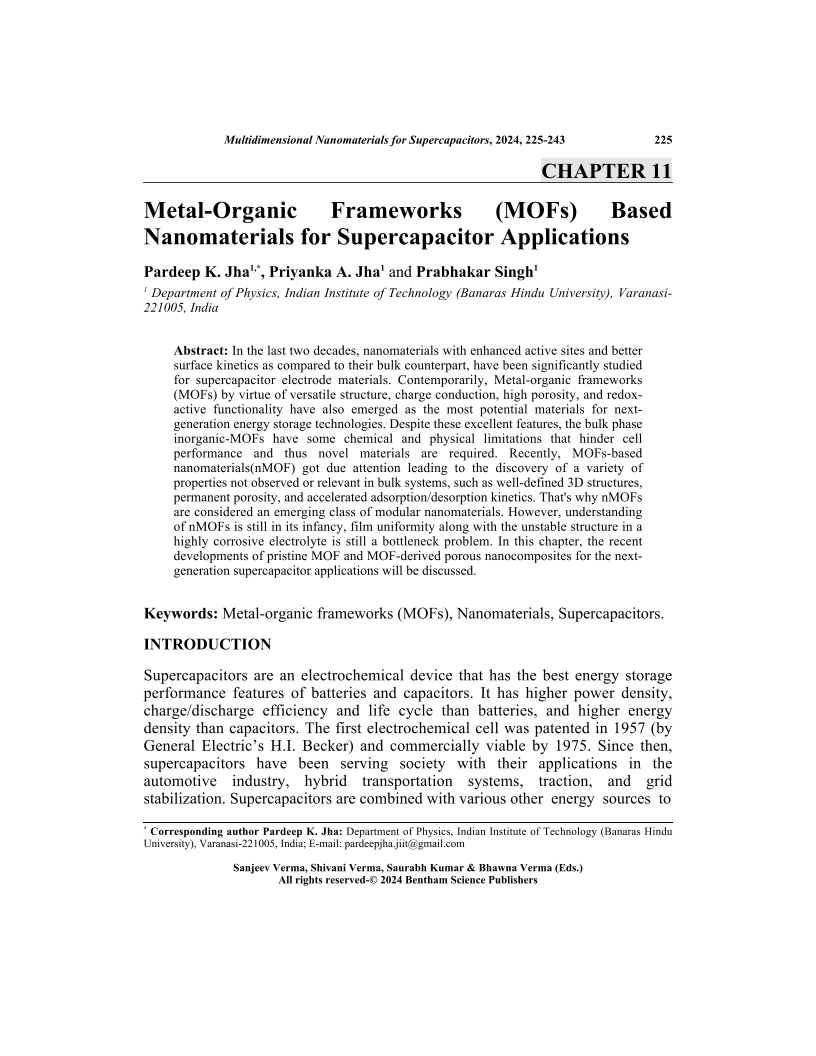Metal-Organic Frameworks (MOFs) Based Nanomaterials for Supercapacitor Applications

- Authors: Pardeep K. Jha1, Priyanka A. Jha2, Prabhakar Singh3
-
View Affiliations Hide Affiliations1 Department of Physics, Indian Institute of Technology (Banaras Hindu University), Varanasi 221005, India 2 Department of Physics, Indian Institute of Technology (Banaras Hindu University), Varanasi 221005, India 3 Department of Physics, Indian Institute of Technology (Banaras Hindu University), Varanasi 221005, India
- Source: Multidimensional Nanomaterials for Supercapacitors: Next Generation Energy Storage , pp 225-243
- Publication Date: May 2024
- Language: English
Metal-Organic Frameworks (MOFs) Based Nanomaterials for Supercapacitor Applications, Page 1 of 1
< Previous page | Next page > /docserver/preview/fulltext/9789815223408/chapter-11-1.gif
In the last two decades, nanomaterials with enhanced active sites and better surface kinetics as compared to their bulk counterpart, have been significantly studied for supercapacitor electrode materials. Contemporarily, Metal-organic frameworks (MOFs) by virtue of versatile structure, charge conduction, high porosity, and redoxactive functionality have also emerged as the most potential materials for nextgeneration energy storage technologies. Despite these excellent features, the bulk phase inorganic-MOFs have some chemical and physical limitations that hinder cell performance and thus novel materials are required. Recently, MOFs-based nanomaterials(nMOF) got due attention leading to the discovery of a variety of properties not observed or relevant in bulk systems, such as well-defined 3D structures, permanent porosity, and accelerated adsorption/desorption kinetics. That's why nMOFs are considered an emerging class of modular nanomaterials. However, understanding of nMOFs is still in its infancy, film uniformity along with the unstable structure in a highly corrosive electrolyte is still a bottleneck problem. In this chapter, the recent developments of pristine MOF and MOF-derived porous nanocomposites for the nextgeneration supercapacitor applications will be discussed.
-
From This Site
/content/books/9789815223408.chapter-11dcterms_subject,pub_keyword-contentType:Journal -contentType:Figure -contentType:Table -contentType:SupplementaryData105

